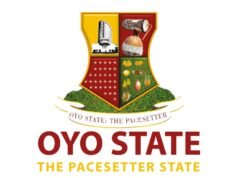Pediatrics is an essential field of medicine focused on the health and wellbeing of children from infancy to adolescence. The educational pathway to becoming a pediatrician is rigorous and costly, often deterring potential students from entering the field.
However, there is good news for those passionate about child healthcare: there are various scholarships available to fund your studies fully. Let’s explore some prominent ones to ease your financial burden while pursuing this rewarding career.
National Health Service Corps (NHSC) Scholarship Program
Table of Contents
If Pediatrics is your chosen field of specialization, consider the National Health Service Corps (NHSC) Scholarship Program. Administered by the U.S Department of Health and Human Services, this scholarship program offers an exceptional financial relief opportunity to medical students.
Eligibility requirements
- Be a U.S. citizen or national
- Be enrolled or accepted for enrollment in an accredited health professions program leading to an eligible degree
- Meet academic requirements (minimum GPA varies by profession)
- Agree to serve in a Health Professional Shortage Area (HPSA) for a set period of time after graduation (3 years for most professions)
Benefits
- Full tuition and fees for up to four years of training
- Annual living stipend to help cover the cost of living
- Signing bonus upon fulfilling service commitment
- Malpractice insurance coverage during service
- Opportunities for loan repayment assistance
How to apply
- The application period typically opens in March and closes in May.
- Applications are submitted electronically through the NHSC Scholarship Program website.
- Selection is based on academic merit, demonstrated financial need,
The NHSC Scholarship Program not only eases the financial strain associated with medical school but also provides a valuable opportunity to make a difference in public health.
Health Resources and Services Administration (HRSA) Scholarships for Disadvantaged Students (SDS)
The Health Resources and Services Administration (HRSA) offers Scholarships for Disadvantaged Students (SDS), aimed at assisting students from low-income backgrounds in pursuing degrees in the health field, including Pediatrics. Recognizing the financial challenges many students face, the HRSA’s SDS program is committed to lessening these burdens and helping aspiring pediatricians achieve their dreams.
Eligibility:
- Be a U.S. citizen or national.
- Be enrolled full-time in an accredited health profession or nursing program at an eligible school.
- Meet the school’s definition of “disadvantaged student,” which often includes factors like low income, first-generation college student, or belonging to a racial or ethnic minority group.
- Demonstrate financial need.
How to apply:
- You cannot apply directly to HRSA for this program. Instead, contact the financial aid office at your school to see if they participate in the SDS program and inquire about their application process and deadlines.
- Each school has its own selection criteria and deadlines, so be sure to reach out early and gather the required documents.
This scholarship, while easing the monetary worries associated with higher education, also creates a pathway to a meaningful career where students can make real change in pediatric healthcare. By removing financial barriers, the HRSA’s SDS program fosters a more diverse, inclusive, and dedicated Pediatric workforce, striving for improved child health outcomes nationwide.
Read Also: Fully Funded Scholarships For Athletes
Fully Funded FAO-Hungarian Government Scholarship Programme in Hungary
If your pursuit of Pediatrics has you setting your sights on Europe, the Fully Funded FAO-Hungarian Government Scholarship Programme offers an advantageous opportunity. This comprehensive scholarship makes studying at participating Hungarian universities a tangible reality for international students by providing all-encompassing funding.
Eligibility requirements:
- Be a citizen of an eligible developing country.
- Hold a Bachelor’s degree in a relevant field.
- Meet the English language proficiency requirements (usually IELTS or TOEFL).
- Have a strong academic record and demonstrate a commitment to agricultural development.
- Be in good health.
Selection process:
- Applications are pre-screened by the FAO.
- Shortlisted candidates may be invited for an interview.
- Final selection is made by the Hungarian Ministry of Agriculture.
How to apply:
- Check the eligibility criteria and list of participating countries on the FAO website: https://www.fao.org/europe/events/detail/fao-hungarian-government-scholarship-programme-2024-2025/en
- Review the program brochure and choose your desired university and program.
- Prepare the required application documents, including transcripts, CV, letter of motivation, and recommendation letters.
This unique opportunity offers international students the chance to make a meaningful impact on the global healthcare stage, starting with the enhancement of child healthcare.
FAQS
How do you get a 100% scholarship?
While getting a 100% scholarship can be challenging, it’s not impossible. Here are some key strategies:
- Start early: Research and apply for scholarships well in advance.
- Target multiple scholarships: Don’t limit yourself to one or two options.
- Demonstrate academic excellence: Maintain high grades and standardized test scores.
- Showcase extracurricular involvement: Participate in activities that demonstrate leadership, community service, and passion.
- Highlight financial need: Complete the FAFSA form for need-based aid.
- Consider specific programs: Look for scholarships offered by your chosen university, field of study, or relevant organizations.
- Apply strategically: Tailor your application materials to each scholarship’s requirements.
Does Unicef offer scholarships?
No, UNICEF itself does not directly offer scholarships for individuals to pursue academic studies. However, they may work with partner organizations on specific scholarship programs related to specific initiatives. It’s best to check their website and publications for updates on such opportunities.
What is the difference between fully funded and funded scholarships?
- Fully funded scholarships: Cover all or nearly all of your educational expenses, including tuition, fees, living expenses, and sometimes travel.
- Funded scholarships: Cover a portion of your educational expenses, usually tuition and/or fees. You may still need additional funding to cover other costs.
How to apply for a scholarship at Stanford University?
Stanford University offers various scholarships through different channels:
- Need-based aid: Complete the FAFSA form to be considered for need-based financial aid, including scholarships.
- Merit-based scholarships: These are awarded automatically based on academic achievement and other factors. No separate application is needed.
- Departmental scholarships: Some departments or programs offer their own scholarships. Contact the relevant department for details.
- External scholarships: Research scholarships offered by independent organizations and foundations.
Does Stanford give 100% scholarships to international students?
Stanford is committed to making education accessible to talented students regardless of their financial background. They offer generous need-based financial aid to all admitted students, including international students. This aid can cover the full cost of attendance for students with demonstrated financial need.
Conclusion
Pursuing a career in Pediatrics can be a challenging journey, particularly due to the significant financial investment required. However, the existence of fully funded scholarships such as the National Health Service Corps (NHSC) Scholarship Program, Health Resources and Services Administration (HRSA) Scholarships for Disadvantaged Students (SDS), Rutgers Business School International Student Scholarships, and the FAO-Hungarian Government Scholarship Programme, can alleviate this financial burden. They not only provide the necessary monetary support but also foster opportunities for valuable work experience, personal development, and the ability to make a real difference in child healthcare.
In conclusion, fully funded scholarships for Pediatrics are not merely financial aids; they are transformative opportunities that empower passionate students to realize their aspirations of becoming pediatricians. They help forge pathways to meaningful careers and impactful contributions to child healthcare. Therefore, potential students should seize these opportunities, helping shape a future where every child has access to quality healthcare.









